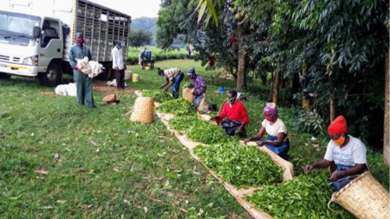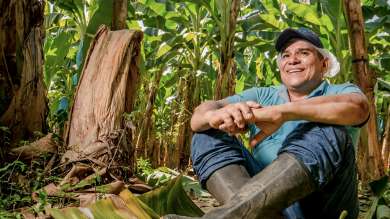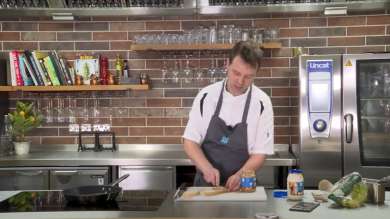Increasingly, small-scale banana farmers are facing challenges such as the impacts of climate change, loss of soil fertility, low productivity and growing threats of pests and diseases which are threatening livelihoods. To address these issues, since 2019, Co-op has supported the Productivity Improvement Programme (PIP) in conjunction with CLAC (the Latin American and Caribbean Fairtrade Producer Network) and our supplier Fyffes to support small-scale banana farmers in Colombia and Dominican Republic.
PIP aims to improve soil health through encouraging organic production methods and the incorporation of micro-organisms and organic matter, which translates to a reduction in the environmental footprint of banana production, in addition to improved resilience to extreme changes in climate through higher soil fertility and resistance to diseases.
Since inception, PIP has seen demonstrable success. After 4 years, some producers have gone from producing 40 boxes per-week to producing over 75 boxes per-week, representing an increase of more than 85%, with PIP farms generating a gross income 15% higher than non-PIP farms, resulting in increases in smallholder farmer incomes when combined with reduced production costs from utilising organic methods. Find out more by clicking here.






